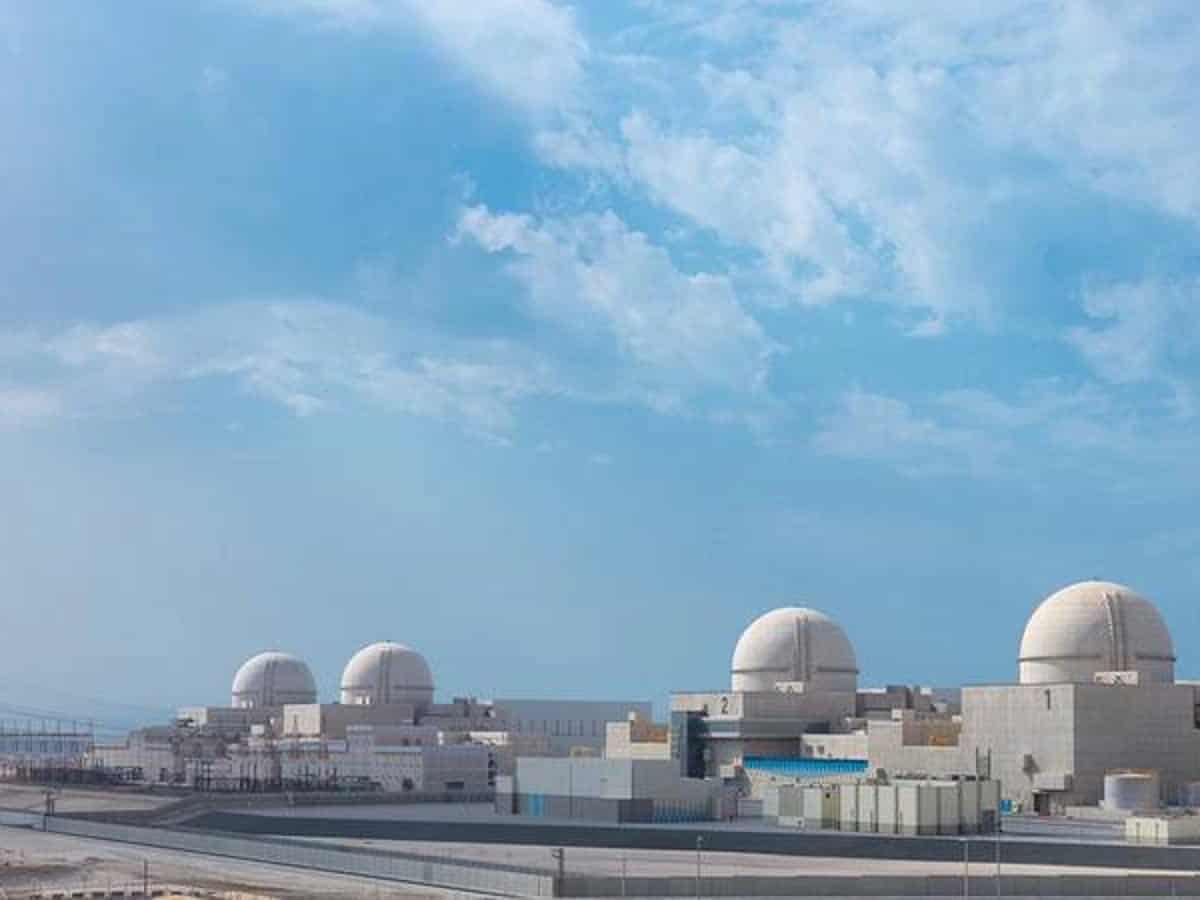
Abu Dhabi: The United Arab Emirates (UAE) has added 1,400 megawatts of zero-carbon emission electricity to its national grid, following the start of commercial operations of Barakah Nuclear Energy Plant’s Unit 2.
The Emirates Nuclear Energy Corporation (ENEC) announced that the total electricity produced by the nuclear plant’s Units 1 and 2 now stands at 2,800 megawatts, reports Xinhua news agency.
The Barakah Nuclear Energy Power Plant, located in the Al Dhafra Region of Abu Dhabi, is “the first nuclear power plant in the Arab region designed to create energy in a safe, reliable and environmentally friendly manner”, the ENEC noted.
The nuclear plant’s Unit 1 commenced commercial operation in April last year.
Units 3 and 4, meanwhile, are in the final stages of commissioning.
The construction of the Barakah Plant started in 2012.
When its four units are commercially operating, the Barakah Plant will produce up to 25 per cent of the UAE’s electricity needs, it added.
Mohamed Ibrahim Al Hammadi, ENEC managing director and CEO, said “the Barakah Nuclear Energy Plant is a sustainable powerhouse for the UAE.
“With Unit 2 reaching commercial operations less than 12 months after Unit 1, we have demonstrated the UAE’s megaproject capabilities, building institutional knowledge to enhance delivery to the highest standards and offer a successful case study for other nations looking to diversify their energy portfolio using a proven and sustainable technology.”
Mariam Almheiri, UAE Minister of Climate Change and Environment, said “the beginning of commercial operations for Unit 2 of the Barakah Nuclear Energy Plant is a milestone for the UAE, as we continue the rapid decarbonization of the power sector by doubling clean electricity production”.



